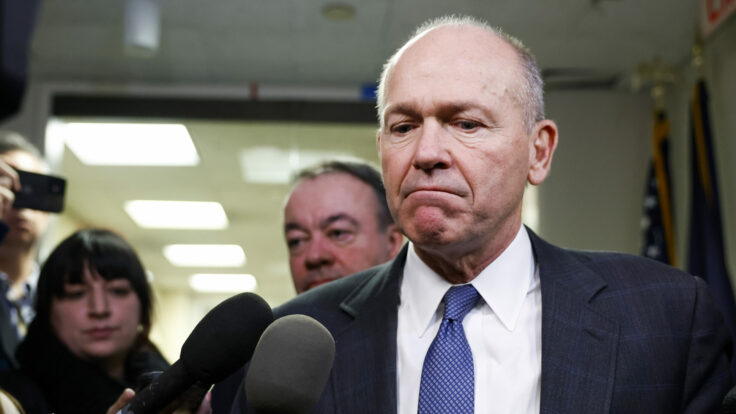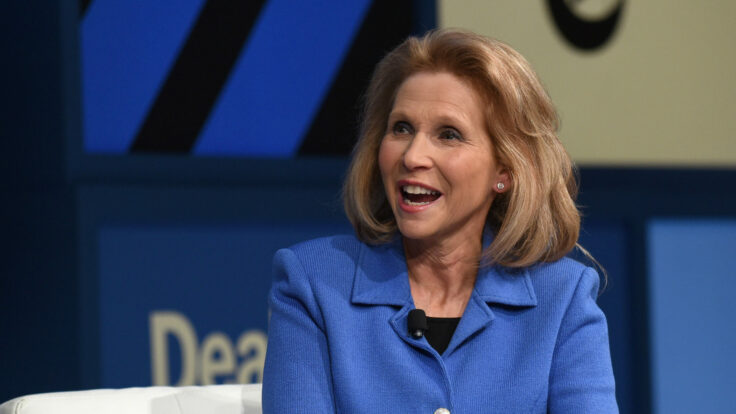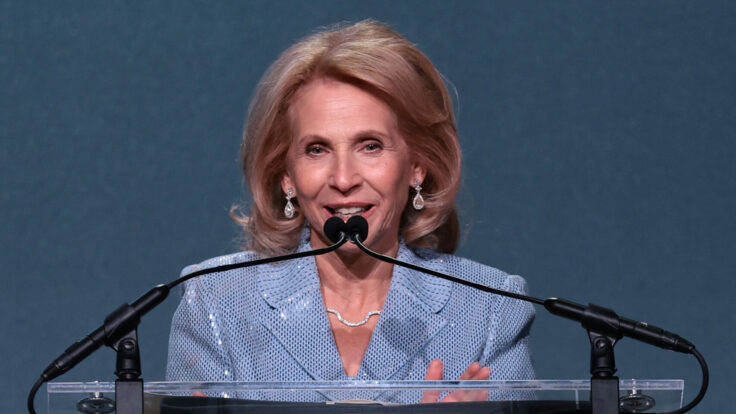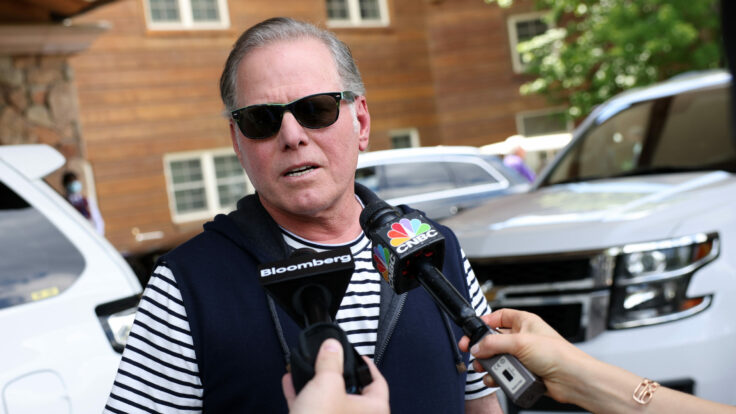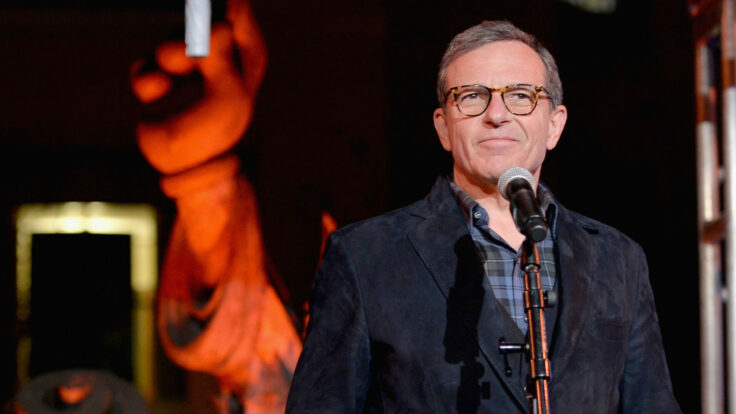 |
 |
|
Happy Sunday, and welcome back to Dry Powder.
|
|
While Sam Bankman-Fried continues to offer ill-advised interviews to journalists left and right, some real action is at last beginning to unfold behind the scenes, in the likely appointment of an examiner by the bankruptcy court in Delaware to make sense of how the FTX house of cards came tumbling down. In today’s issue, I consider what that examiner will be looking for, and how his or her findings will reverberate through the rest of this mess. Plus, why Elon’s Twitter antics may be part of a grand, if wily, scheme.
|
|
|
With all due respect to our friend Andrew Ross Sorkin, who snagged the primo Zoom interview with S.B.F. from the Bahamas on Wednesday, giving the 30-year-old former billionaire yet another opportunity to blither on and on, against the advice of esteemed counsel, the most important event of the week in the ongoing saga occurred the next day, in the bankruptcy court in Delaware. That’s when Andrew Vara, the U.S. bankruptcy trustee for the Delaware region, filed a motion requesting the judge appoint an examiner in the bankruptcy of FTX Trading et al. If Judge John T. Dorsey signs off, and surely he will, we will eventually—probably in four to six months or so—know what really happened here and why.
In the meantime, all the late night talking that S.B.F. is doing, claiming he didn’t knowingly commingle funds or intentionally lose more than $10 billion of his customers’ money, is completely irrelevant. What will matter in the FTX Trading debacle is what the examiner discovers happened and whether the S.E.C. and the Justice Department concur—the two of them are also investigating—and whether they decide that S.B.F. has engaged in illegal activity. The examiner’s report, if it happens, will likely be the public’s and the interested parties’ first detailed understanding of what happened and how and why the money was lost. Anything S.B.F. does or says before the examiner’s report is released is largely irrelevant and will likely do more damage to his legal predicament, as he freely admitted to Sorkin on Wednesday. (And he’s still talking and talking: in the last few days alone, to the Wall Street Journal, the FT, Good Morning America and to a very angry group of crypto investors on Twitter Spaces.)
Here’s what is relevant: Vara’s arguments for wanting the judge to appoint an examiner. He wrote that the appointment of an examiner would be in the “best interests” of everyone involved in the bankruptcy case, from customers and creditors, to employees and equity investors. The combination of the existing published reports, plus the “first-day” observations of John Ray III, the new FTX C.E.O, “provide reasonable grounds to suspect that Bankman-Fried and others participated in actual fraud, dishonesty, or criminal conduct in the management of the Debtors.” Vara referred to the FTX bankruptcy as “likely the fastest big corporate failure in American history” and the debtors’ one million customers, creditors and investors are “demanding answers to what happened and how.”
Vara continued that an examiner “could—and should—investigate the substantial and serious allegations of fraud, dishonesty, incompetence, misconduct, and mismanagement by the [d]ebtors, the circumstances surrounding the [d]ebtors’ collapse, the apparent conversion of exchange customers’ property, and whether colorable claims and causes of action exist to remedy losses.” Vara wrote that an examiner would investigate how FTX Trading came to lend “its affiliate” Alameda some $10 billion of “customers’ property” in “violation of the express provisions in FTX’s customer contracts” as well as “the use of software to conceal such misuse.” Now we’re talking. This is the heart of the matter, not whether S.B.F. is sorry for what happened and whether “we kind of lost track of positional risk,” as he told the FT.
|
|
|
What also merits examination, Vara wrote, citing Ray, is S.B.F.’s and FTX’s “complete failure of corporate controls and… a complete absence of trustworthy financial information as occurred here.” Vara also noted, correctly, that there is a massive conflict of interest at the very heart of the bankruptcy case among two of the many debtors—Alameda Research, S.B.F.’s investment fund, and FTX Trading. “FTX Trading has a claim against Alameda Research in the billions of dollars on behalf of its customers in connection with one or more loans of allegedly converted customer funds that FTX Trading had no right to make in the first instance,” Vara wrote. “Such an immense, out-of-the ordinary course claim of one [d]ebtor against another, especially one that involves the alleged conversion of customer funds, calls out for independent scrutiny by an independent examiner.”
There is no question that an examiner will be appointed—I previously volunteered Anton Valukas, he of Lehman examiner fame, for the role—and that the examiner’s report will eventually provide an invaluable roadmap to what happened and why. Until then, unless the slow-moving S.E.C. and Justice Department cough up an indictment, everything else is, you know, just so much bullshit.
Not that Andrew’s interview with S.B.F. didn’t reveal some interesting nuggets. Among them are the new facts that the $1 billion loan that Alameda made to S.B.F—as shared by Ray in his initial observations about the case—is gone, and won’t be paid back by S.B.F. to the estate. “I don’t have any hidden funds here,” S.B.F. told Andrew. “Everything I have I am disclosing and I am down to—I think I have one working credit card left. I think it might be $100,000 or something like that in that bank account. Everything I had, even all the loans I had—those were all things I was reinvesting in the businesses that I put everything I had into FTX.”
Andrew asked S.B.F. what he thought was in store for him, in the future. Like an ambitious politician being asked whether he or she wanted to be president of the United States, S.B.F.’s answer was ambiguous. “What is my future?” he replied. “I don’t know what my far future is. When you fast-forward, I don’t know what I’ll be doing a long time from now. When I look at the near- and medium-term, what am I thinking? And again, I don’t know what’s going to happen. A lot is not in my hands at this point. I want to be helpful wherever I can to regulators, administrators, internationally, who are working to help FTX’s customers, and I want to be helpful wherever I can on anything that could help bring a lot more value to those customers. I don’t know where that will lead.”
Some smart investors, such as Bill Ackman and Kevin O’Leary, have said they believe S.B.F. Hmmm, maybe. Perhaps it was Jim Cramer, in conversation with his CNBC colleague Dave Faber, who summed up best the view on Wall Street of S.B.F.’s predicament. S.B.F. is both “a pathological liar” and a “con man,” Cramer told Faber. And then flashing his Harvard Law School credentials, he added that S.B.F. is a “clueless idiot. Intent means nothing. Saying sorry means nothing. If you co-mingle, if you had no record keeping, those are against the law… If you are admitting to illegality, even if you think you had no intent, the U.S. Attorney does not care one whit about intent. What the U.S. Attorney cares about is: Did you break the law?”
Another vote comes from Michael Novogratz, the hedge fund billionaire and crypto evangelist. He said the other day that S.B.F. “should go to jail.” Bring on the examiner Judge Dorsey, the sooner the better.
|
|
|
|
|
These days, the only thing that makes any logical sense to me about Elon Musk and Twitter is that he’s crazy like a fox. Assuming he wants to keep control of Twitter—a fair assumption considering he’s just (over)paid $44 billion for the company, including putting in something like $24 billion of his own cash—I’m assuming from his recent behavior (firing half the employees, picking fights with advertisers, taunting Apple) that he is actually trying to destroy the short-term value of the company in order to spook his bank group sufficiently so that it will sell him the $13 billion of debt that it holds at any price, just to get rid of it and be done with him.
Let’s review: At the moment, Twitter’s banks, led by Morgan Stanley and Bank of America, hold roughly $13 billion of senior debt secured by Twitter’s assets. Normally after a deal of this nature has closed—highly leveraged and risky—the banks would have syndicated those loans, Wall Street-speak for selling the loans off to investors so that the loans would be off Wall Street’s balance sheets and others would get the benefit of Twitter’s annual $1 billion of interest payments and the return of the $13 billion in principal, over time. Others would also take the risk that those repayments might not happen. But in this case, the banks decided not to syndicate the loans. They still have them on their collective balance sheets.
This is untenable, both from a financial and a regulatory perspective. If the banks were to try to sell those loans now, with Twitter in an operational free fall, then I’m told, at best, they would get about 50 cents on the dollar for them, causing the banks to suffer a collective loss of $6.5 billion. Ouch. So, instead, the banks are holding the loans and hoping that things will improve operationally at Twitter over time and that the loans can be sold for a better price. But as is well known on Wall Street, hope is not a strategy. (Nor will the Federal Reserve allow the banks to avoid marking the loans to market for an indefinite period of time.)
Somehow, through all this mishegas, Elon is still the world’s richest person, with a net worth of around $190 billion, according to Bloomberg, down a mere $81 billion in 2022. Therefore, let’s give him the benefit of the doubt on the intelligence meter. He has to make a roughly $500 million interest payment to Twitter’s banks in April. My bet is that Twitter will not have the cash or the cash flow available to make that payment. That means Elon can pay the banks out of his own pocket, or ask his fellow equity investors to pony up pro-rata to make that payment. (I’d be pissed to be asked to make a bigger investment, especially since their initial equity investment is on its way to being gone… but anyway.) Or Elon can play chicken with his banks, and not make the interest payment, or threaten not to make it. If he doesn’t make the interest payment, after a 30-day grace period, then creditors can choose to put Twitter into an involuntary bankruptcy, which would likely make the Wall Street banks the new owners of Twitter (eventually, after a long fight), with Elon and his buddies being wiped out of their investment.
I can’t see Elon letting that happen. What I can see Elon doing, given a basic level of intelligence, is what’s going on now: running down Twitter and its prospects in the near-term in order to spook the banks sufficiently that the idea of bankruptcy is so real that they will decide that their best course of action will be to sell their debt to Elon at a severe discount. It would be far more logical for Elon to buy—or try to buy—Twitter’s debt back from the banks at say 40 cents on the dollar, or $5.2 billion, and retire the debt rather than pay the banks $1 billion a year in interest and then pay them back the principal of $13 billion over time. Buying the debt at a discount, and retiring it, would eliminate forever any chance that Elon would lose control of Twitter to his creditors. If the banks are sufficiently frightened that Elon won’t make the April interest payment or that Twitter’s EBITDA will slowly disappear, then a sale of their debt to Elon, even at a severe discount, would make a lot of sense and actually be their best option.
And that would make sense for Elon too. If the banks sell their debt to anyone else but Elon at a discount, say rough-and-tumble distressed debt buyers such as Apollo Global or Oaktree, then it’s a virtual lock that Elon will lose control of Twitter to them, unless he pays them off at par, or something like par, giving them a windfall for no good reason. The only logical step for Elon here is to do exactly what he’s doing: run the company down on a daily basis, and then make an offer to buy the banks’ debt at a huge discount to par and retire that debt forever. That’s the only way he gets to keep control of Twitter, unless he’s some sort of evil genius and can vastly increase Twitter’s EBITDA in ways not readily apparent to anyone.
If he doesn’t try to buy the Twitter debt from his banks, then someone else will buy that debt at a discount, whatever discount that is, and he will lose control of Twitter at some point and his and his investors’ $31 billion of equity will be lost. Maybe Elon doesn’t care about losing Twitter and his $24 billion investment but I suspect some of the other Twitter investors, such as Larry Ellison ($1 billion invested) or Prince Alwaleed (nearly $2 billion invested) might care, and will also see that the only logical thing for him to do at this point is to own the majority of the equity and all of the debt as soon as possible. This mess just gets curiouser and curiouser every day.
|
|
|
|
|
|
|
|
 |
|
|
|
Need help? Review our FAQs page or contact us for assistance. For brand partnerships, email ads@puck.news.
|
|
|
|
Puck is published by Heat Media LLC. 227 W 17th St New York, NY 10011.
|
|
|
|








